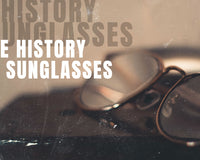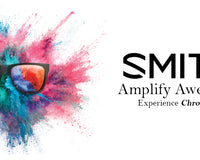
Can COVID-19 be passed through breastfeeding?
Transmission of active COVID-19 (virus that can cause infection) through breast milk and breastfeeding has not been detected to date. There is no reason to avoid or stop breastfeeding.
In communities where COVID-19 is prevalent, should mothers breastfeed?
Yes. In all socio-economic settings, breastfeeding improves survival and provides lifelong health and development advantages to newborns and infants. Breastfeeding also improves the health of mothers.
Following delivery, should a baby still be immediately placed skin-to-skin and breastfed if the mother is confirmed or suspected to have COVID-19?
Yes. Immediate and continued skin-to-skin care, including kangaroo mother care, improves the temperature control of newborns and is associated with improved survival among newborn babies. Placing the newborn close to the mother also enables early initiation of breastfeeding which also reduces mortality.
The numerous benefits of skin-to-skin contact and breastfeeding substantially outweigh the potential risks of transmission and illness associated with COVID-19.
Can women with confirmed or suspected COVID-19 breastfeed?
Yes. Women with confirmed or suspected COVID-19 can breastfeed if they wish to do so. They should:
- Wash hands frequently with soap and water or use alcohol-based hand rub and especially before touching the baby;
- Wear a medical mask during any contact with the baby, including while feeding;
- Sneeze or cough into a tissue. Then dispose of it immediately and wash hands again;
- Routinely clean and disinfect surfaces that mothers have touched.
It is important to replace medical masks as soon as they become damp and dispose of them immediately. Masks should not be reused or touched in the front.
Yes. Breastfeeding unquestionably reduces mortality in newborns and infants and provides numerous lifelong health and brain development advantages to the child.
Mothers with symptoms of COVID-19 are advised to wear a medical mask, but even if this is not possible, breastfeeding should be continued. Mothers should follow other infection prevention measures, such as washing hands, cleaning surfaces, sneezing or coughing into a tissue.
Non-medical masks (e.g. home-made or cloth masks) have not been evaluated. At this time, it is not possible to make a recommendation for or against their use.
If you are too unwell to breastfeed your baby due to COVID-19 or other complications, you should be supported to safely provide your baby with breast milk in a way possible, available, and acceptable to you. This could include:
- Expressing milk;
- Donor human milk;
If expressing breast milk or donor human milk are not feasible then consider wet nursing (another woman breastfeeds the child) or infant formula milk with measures to ensure that it is feasible, correctly prepared, safe and sustainable.
You can start to breastfeed when you feel well enough to do so. There is no fixed time interval to wait after confirmed or suspected COVID-19. There is no evidence that breastfeeding changes the clinical course of COVID-19 in a mother. Health workers or breastfeeding counsellors should support you to relactate.
No. There are always risks associated with giving infant formula milk to newborns and infants in all settings. The risks associated with giving infant formula milk are increased whenever home and community conditions are compromised, such as reduced access to health services if a baby becomes unwell, reduced access to clean water and/or access to supplies of infant formula milk are difficult or not guaranteed, affordable and sustainable.
The numerous benefits of breastfeeding substantially outweigh the potential risks of transmission and illness associated with the COVID-19 virus.










